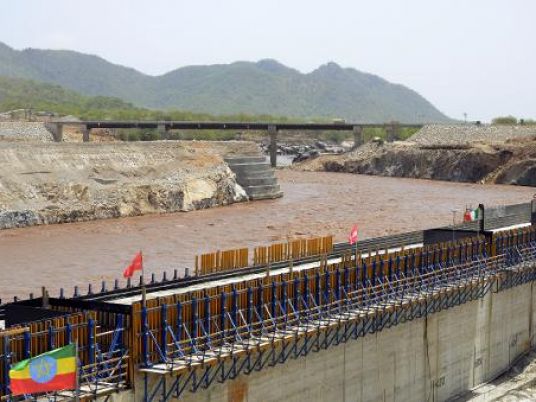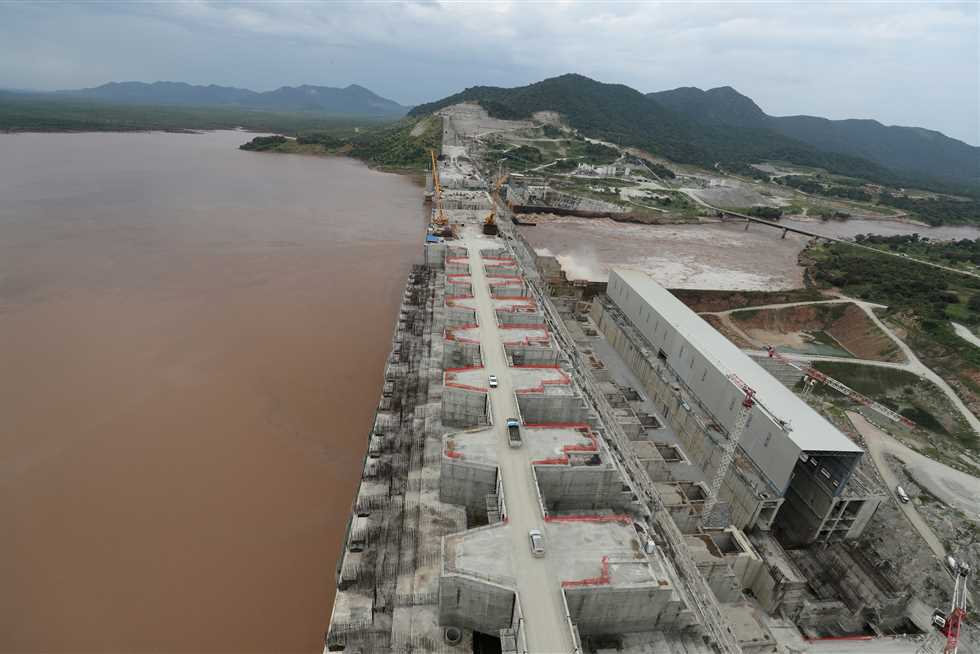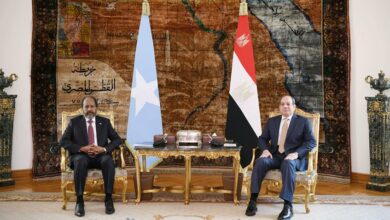
The principles document on the Renaissance Dam signed by President Abdel Fattah al-Sisi, Sudanese President Omar al-Bashir and Ethiopian Prime Minister Hailemariam Desalegn on Monday, was legally binding, and did not cancel former treaties on the Nile water, said former Water Resources and Irrigation Minister Mahmoud Abu Zeid.
The document is a complement to older treaties and is a compromise for the crisis, Abu Zeid added. He expressed hope for more steps in resolving dam-related issues, which could result in fulfilling Egypt, Sudan and Ethiopia's interests and aspirations with regards to development.
The document includes an agreement between the three countries on the operating rules of the first reservoir of the dam, which would help avoid risks or adverse effects of the dam on the downstream countries, Egypt and Sudan. Stating the fair and equitable use of Nile water in the document means respecting international conventions, Abu Zeid said.
Several diplomats meanwhile stressed the importance of signing the general principles document in the Sudanese capital Khartoum, describing the move as a start to resolving the crisis through direct negotiation with Ethiopia. They denied the document represented a full consent by Egypt on the construction of the dam.
Signing the document is a clear indication of the start of formal negotiations, said former Foreign Minister Mohamed al-Oraby. Sisi is firm regarding this issue, as it concerns Egyptian people and their future. The Renaissance Dam has now become a reality, so signing the document is very critical at a stage that requires intense negotiations at the official level to ensure that Egypt will not be adversely affected by the construction of the dam, Oraby added.
Former Assistant Foreign Minister for African Affairs Mona Omar said the signing of the general principles document is the first step in building trust between the two sides, saying that it is not a final recognition of the Renaissance Dam. They are just general principles, she added. The document did not mention specific details on storing water or Egypt's share of the Nile water, Omar mentioned.
"Negotiations are still ongoing, and we are awaiting the report from the consultant office, which will be formed by Sudan, Egypt and Ethiopia, to determine the (effects) of the dam through comprehensive studies this year," said Omar. She stressed that Ethiopia needs to stop construction until the consultant office's report is issued.
Former Foreign Minister Mohamed Kamel Amr also stressed the importance of the principles document, saying it satisfied all parties.
Critics to the move said the general principles referred to in the document were loose and could be explained in various ways. They added the principles document signed by the Egyptian, Sudanese and Ethiopian leaders harmed Egypt's interests and represented a political victory for Ethiopia.
Edited translation from Al-Masry Al-Youm



